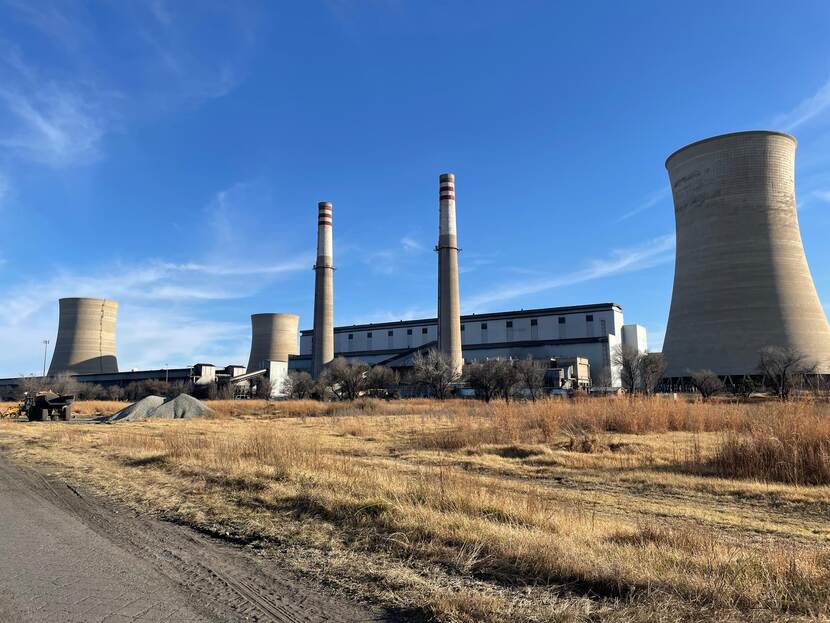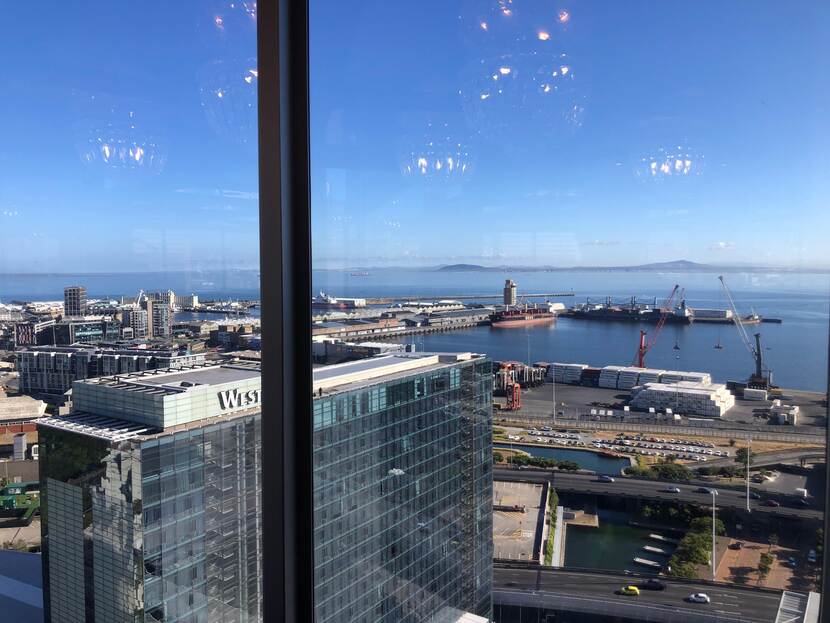South Africa: mid-term budget speech takes a tough stance on state companies
Last week South Africa’s finance minister, Enoch Godongwana, delivered his annual mid-term budget speech, which came with difficult news for South Africa’s state-owned companies (SOEs).

The two key SOEs addressed in his speech include Eskom and Transnet. Both companies play key roles in South Africa’s economy, as well as the agriculture sector. Eskom is the country’s national electricity company, which produces over 80% of the country’s electricity and is the sole distributer of power in the country. Transnet owns and manages the country’s freight rail network and harbours.
Transnet has been marred in recent times by changes in leadership, overwhelming debt and various inefficiencies, which have seen much of the country’s freight move from rail to road. This has also pushed farmers to use road transport for their produce, which is less sustainable and more expensive but also exposes them to other challenges such as the deteriorating road conditions in rural areas. However, these challenges have also pushed Transnet to make some drastic changes. In January, the company announced that it would appoint a private company to operate the rail line between Johannesburg and Durban, as well as another private company to operate the Port of Durban. Port of Durban is the country’s largest and the closest to the economic hub Gauteng. Just last month, Transnet also announced a tender for the private operation of a fruit handling terminal in Durban.
Minister Godongwana called on Transnet to continue making an effort to involve the private sector in its operations in a bid to raise funding without needing additional government loans, as well as to improve operations and profitability. Although the minister is satisfied with progress in this light, he has attached more stringent conditions to Transnet’s existing government loan. If further changes are implemented and the country can revive its extensive rail network, still one of the longest in the world, the economic benefits are numerous. This would become a more efficient way to transport freight, particularly cooled freight. It would reduce pressure on South Africa’s roads and highway system, the latter being well maintained and impressive. This would also provide more opportunities for emerging farmers to access the international market as regional consolidation centres mean less distance to travel to deliver their goods. For many emerging farmers, travelling to the port cities or trying to organise private freight via truck are not feasible.

Fruit SA, which represents several sub-sector agriculture organisations expressed concern over the state of the Port of Cape Town, where weak performance and delays threaten export potential. The sector, as well as the provincial government have appealed to Transnet to replicate what it is doing in Durban and to appoint a private company to operate the port. However, private sector organisations are actively engaging with Transnet to improve performance in the short term.
The minister also made strong remarks regarding Eskom’s financial situation. Once touted as the best power company in the world, producing a surplus of energy. However, in recent years it has been struggling to maintain its aging coal power stations and has not kept up with construction of renewable alternatives. This means the company is often unable to produce sufficient electricity to meet demand, which has hindered economic growth but also reduced the company’s income streams. The minister previously provided Eskom with a ZAR 254 billion (EUR 12,89 billion) debt relief package. However, he used his speech to announce changes to the terms of the package, which will mean that treasury can decrease the amount of the loan if Eskom fails to deliver on the conditions. The loan is also changing from interest-free to interest-bearing as a penalty for the company not meeting conditions. Eskom is at the centre of the country’s Just Energy Transition, of which the Netherlands became an official member at the end of last month.
The Just Energy Transition is the country’s national plan to decarbonise without leaving huge unemployment in traditionally carbon-heavy sectors such as coal mining. This means that as the country transitions to renewable forms of energy it needs parallel streams to create new, sustainable employment opportunities. Therefore, rolling out training programmes, having companies invest and create jobs in coal-dependent communities is critical. So far, the Embassy in Pretoria has been supporting Eskom’s pilot development of a greenhouse and open field farming around Grootvlei powerstation, with the goal of creating sustainable, and climate-smart horticulture jobs.
While South Africans have become disillusioned with the state of many affairs in the country, there appears to be a sense of trust in the Finance Minister and Treasury who have taken an assertive line against overspending and organisations who fail to meet financial agreements. This approach continues to create trust for those considering making investments in the country and it appears that SOEs are willing to heed to the minister’s conditions, with Transnet making several steps to include private sector players in their operations.
The minister will deliver a more in-depth speech again early next year with the annual Budget Speech, which normally takes place in February.